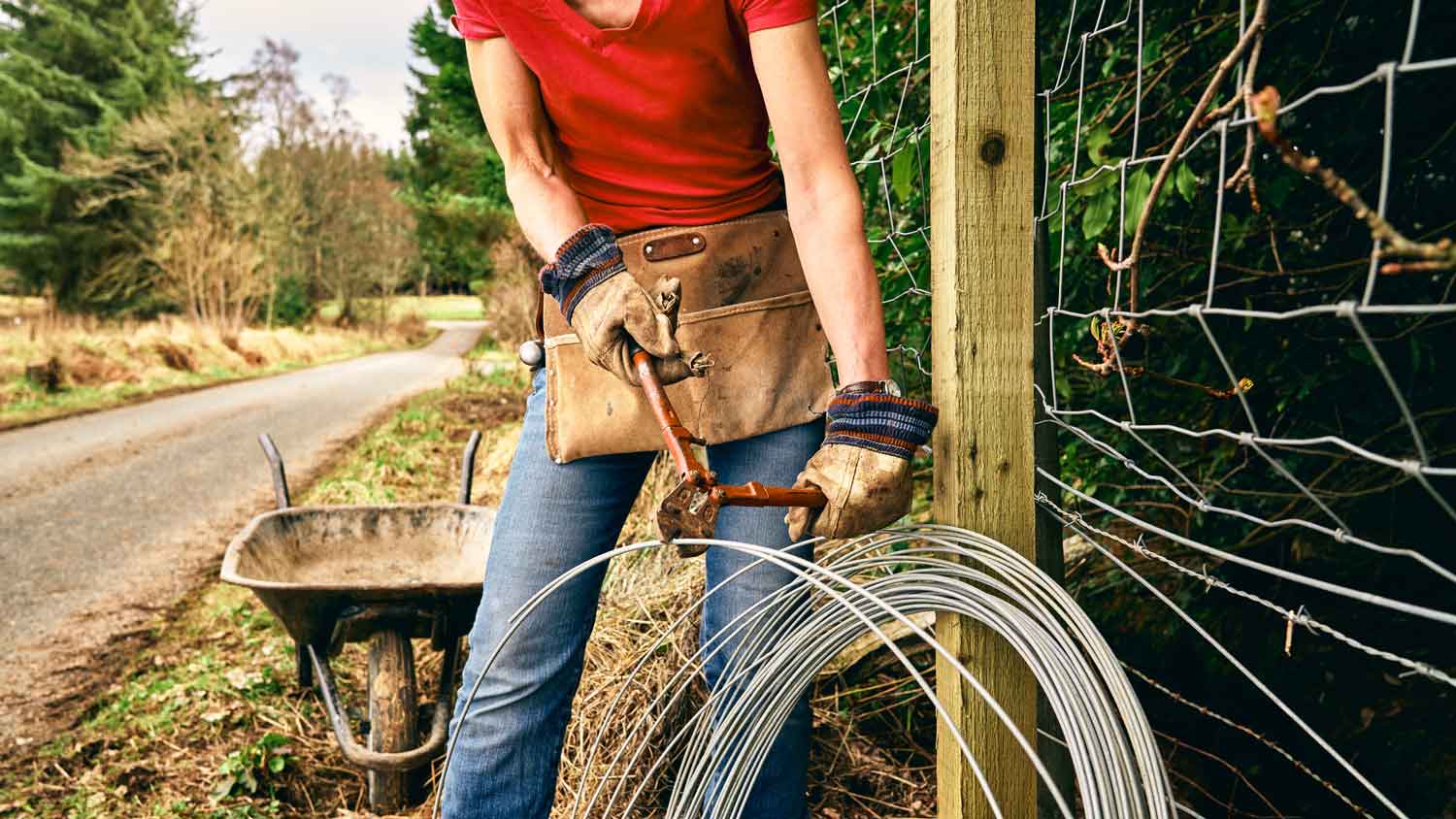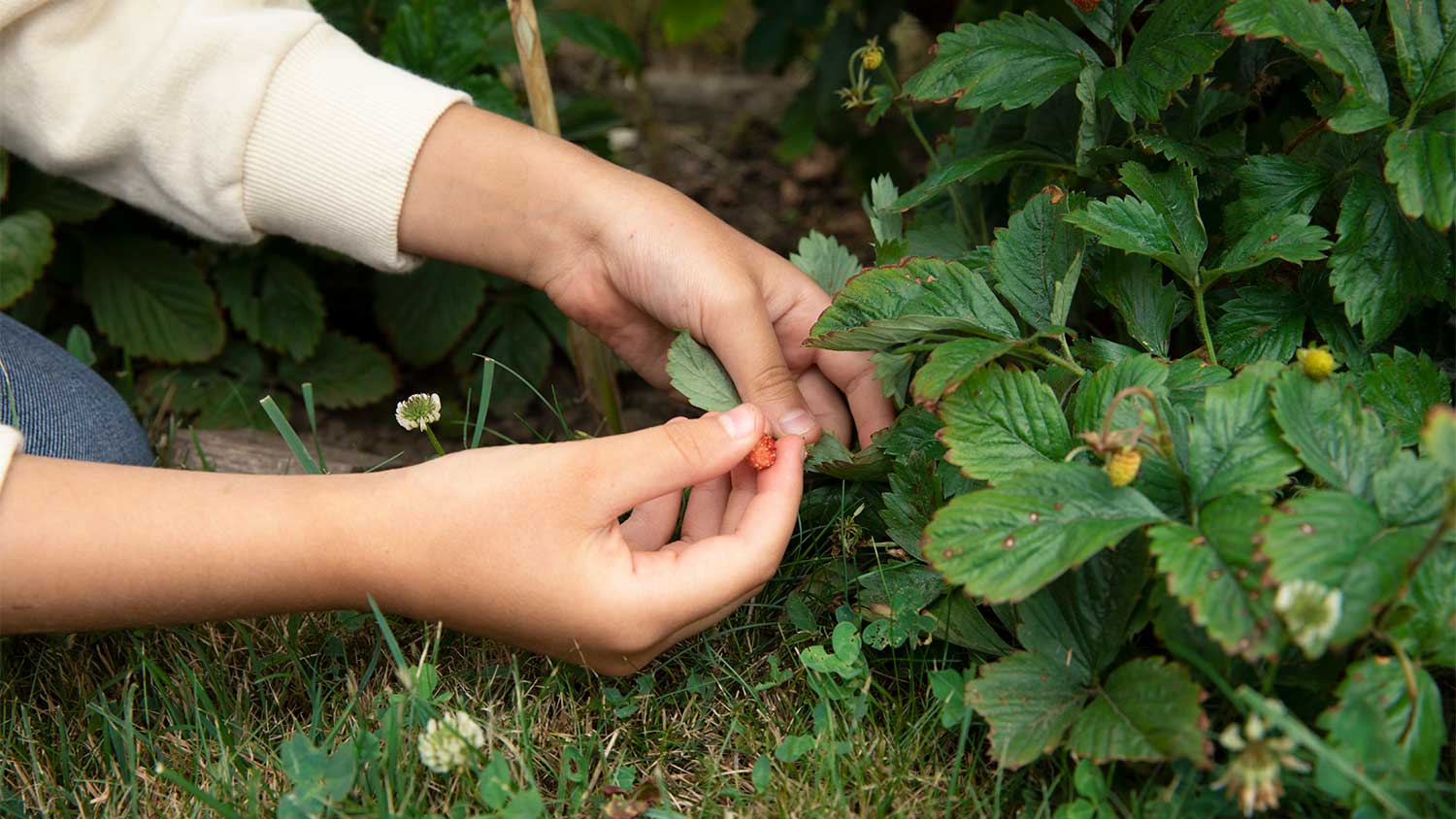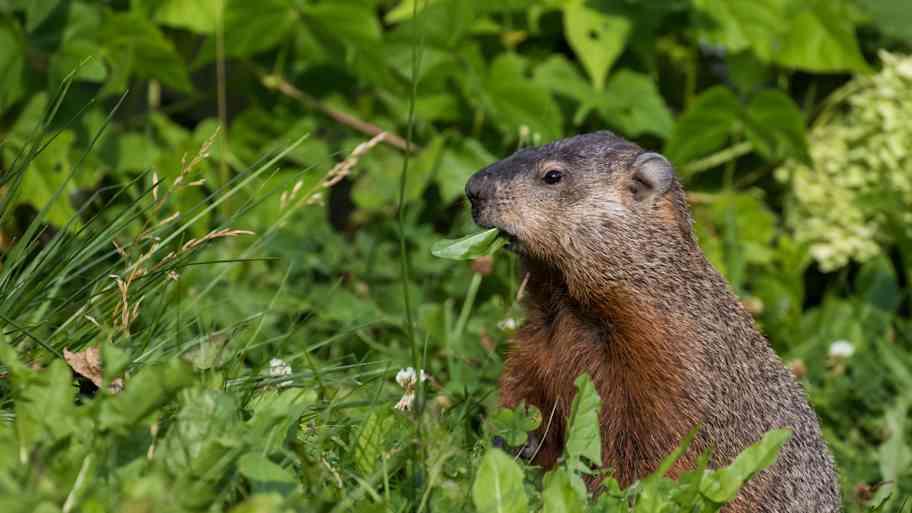
Your skunk removal cost will depend on several factors, including type, location, and more. Our guide will cover everything you need to know about skunk removal costs.
Keep that passel of possums from putting down roots on your property


Professional possum removal costs around $250 to $500, but hiring a pro is recommended since possums can carry diseases and bite.
Some municipalities require you to work with a licensed wildlife professional if you plan on relocating possums.
A possum removal company has the tools and expertise to skillfully trap possums, humanely relocate them, and help you prevent future possums on your property.
If there’s garbage thrown everywhere and your garden fruits and veggies have mysteriously vanished, a likely culprit is an opossum, more commonly known as a possum. While these marsupials are seemingly harmless, they can cause damage to your yard, chicken coops, and even the inside of your home. To save your property—and your sanity—learn how to get rid of possums quickly and humanely.
Possums usually move on from your property within a few days. So, if they’re not causing too much trouble, you can simply wait them out. But if a family moves in and starts tearing through your trash, try these steps to make them leave.
Possums look for small openings to create a den. Patch any holes in your roof to prevent possums from entering your attic, and search your yard and underneath your porch or deck for any dens and safely remove them (contacting a wildlife pro for den removal is your best bet).
According to The Humane Society of the United States, mother possums usually carry their young with them whenever they leave the den, but always check to ensure no babies are left behind before you fill any holes.
You can spray chemical and natural animal repellents in your yard to keep possums away. These often smell like fox urine or something similar. These repellents are not harmful, but you’ll need to apply them regularly, making this option harder to manage than a one-time removal.
Used as an aversion technique, motion-activated sprinklers scare possums away from your yard. You’ll want to move the sprinklers around your property frequently so these smart critters don’t become habituated or learn to avoid them to access your home and yard.
Trapping, when done properly, is a fast, safe, and humane method that involves baiting a possum with berries, veggies, fish, or cat food (like you would with a raccoon) and releasing it in a far-away location. We recommend that only experienced wildlife control pros trap and release possums to ensure the possum’s survival and the homeowner’s safety. In some states, only professionals or those with written consent are legally allowed to perform trap and release activities.
Never try to kill a possum—this is not only an illegal practice in many states but also inhumane and unnecessary.

Once you’ve shooed the little critter out of your yard, how do you keep possums from returning? Try these methods.
Add wire fencing around your garden (at least 4 feet high and 6 inches into the ground), particularly around a vegetable plot.
Keep your garden well-lit at night, as possums prefer dark environments.
Keep your yard debris-free so possums can’t make cozy dens.
Patch holes in your roof or fence.
Repair chimney caps and venting.
Pick up food (especially fallen fruit), dog/cat treats, and birdseed from your yard.
Add a locking mechanism to your trash cans.
Seal your doggie doors.
Trim tall trees and vegetation to keep these animals off your roof. Possums are known to climb high and use long branches to jump onto your building and access attics.
Add protective latticework or mesh screens beneath your porch or decking so possums can’t burrow underneath.
Close doors and windows of garden sheds.
Keep compost in a bin and not a loose pile.
Scavenging possums will try to make your house or yard a home if you offer easy access to regular food, water, and shelter. Removing or blocking access to attractants reduces the chances of possums doing anything more than passing by. But, if you see signs of these creatures setting up home, it’s time to take steps to eliminate possums.

Even if you don’t see a possum pattering around your patio, here are some telltale signs you have a possum problem:
Your garden veggies and berries are missing.
Something trampled your plants and flowers.
You find animal droppings (brown with a white or yellowish mold), greenish protective spray marks, and unpleasant, musky odors.
You hear noises (hissing) in your attic, crawl space, or beneath your porch.
Something has gone through your trash searching for food.
Something broke into your chicken coop (possums eat chickens and eggs).
You find scattered food remnants. Possums are messy eaters!
While you can DIY some removal techniques, such as adding repellents, when it comes to baiting and trapping, we recommend calling in a local possum control professional to get rid of a possum that has made themselves comfortable in or around your home.
A wildlife control expert knows local laws and regulations concerning possums and wildlife. They’re knowledgeable about possum habitats and can safely transport the critter to a new living space away from people. Also, many animal control pros will clean up dens, debris, and droppings left over from possums.
The average cost of hiring a wildlife removal service to get rid of possums is $250 to $500. You can expect animal removal services to bill per job instead of charging an hourly rate.
That said, your final bill will depend on:
How many possums are on your property
The size of the possum(s)
Location—inside, outside in your yard, underneath your porch (or how difficult it is to reach the possum)
The extent of the damage caused by the possum
Length of time the possum has made itself at home
Removal method—baiting, trapping, and releasing; den removal; or non-harmful repellants
Elisa Greenberg contributed to this article.
From average costs to expert advice, get all the answers you need to get your job done.

Your skunk removal cost will depend on several factors, including type, location, and more. Our guide will cover everything you need to know about skunk removal costs.

Raccoons on your property can cause a lot of damage to your home and yard. This guide breaks down raccoon removal costs so you can budget accordingly.

When budgeting for possum removal costs, consider number of animals, location, method of removal, and whether you do it yourself or hire a professional.

Keep your pets, livestock, and poultry safe by learning how to keep wolves away. Plus, find out what’s attracting them to your home in the first place.

If there’s a snake in your house or yard, who should you call for snake removal? Though expensive, a wildlife removal pro will ensure the job is done right.

Don’t let gophers destroy your beloved lawn. Look for these five signs of gophers in a yard, plus find out how to get rid of them.